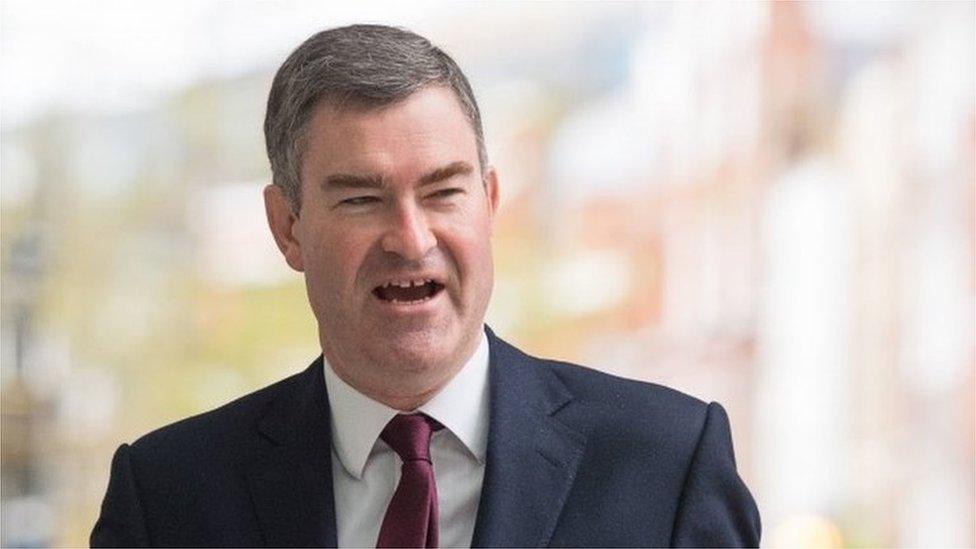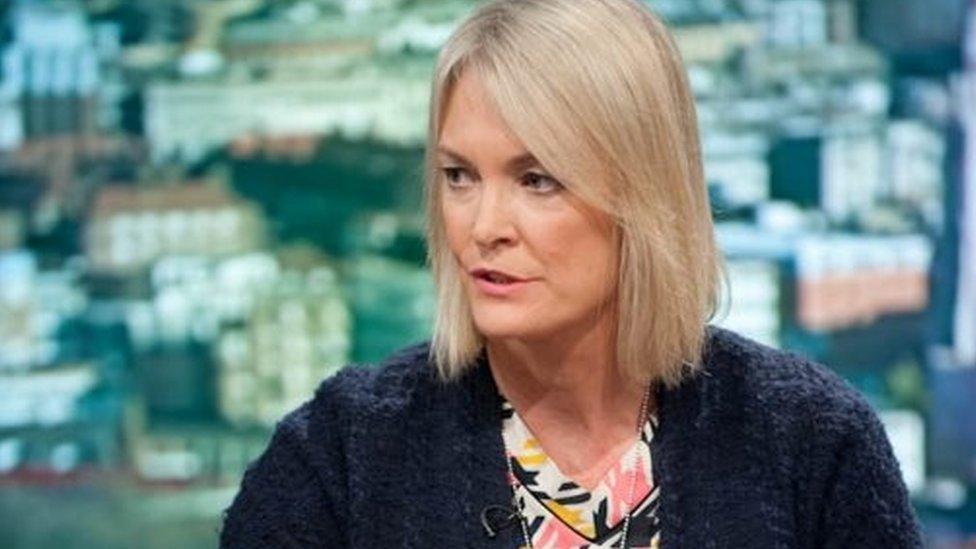'Gaukeward' squad joins fight against no-deal Brexit
- Published

David Gauke abstained in the vote
The goodies have become the baddies.
In a taste of what and whom the still hypothetical Boris Johnson premiership is likely to face, the new rebel alliance in Parliament has shown its strength - winning a vote that would make it harder for the next PM to shut down Parliament to get round its likely opposition to leaving the EU without a deal.
And in political terms, it's an all-star cast list, populated with former Remainer ministers - the new "Gaukeward" squad, so-called after the until-recently achingly loyal Justice Secretary, David Gauke.
They are a currently powerful significant slice of the Conservative Party that, with years of ministerial experience between them, is willing to join forces with opposition MPs to make life harder for their next leader.
One of them, Digital Minister Margot James, who is part of Jeremy Hunt's campaign, even quit her job to back the plan.
Seventeen Tories voted against the government. And many others abstained, including four cabinet ministers - among them Chancellor Philip Hammond and the Remainers' darling, International Development Secretary Rory Stewart.
Warming up
Those ministers are highly likely to be shoved out of government next week in any case - or, as I understand it, are already planning to congratulate Mr Johnson in one breath next Tuesday, then make it clear with the next that they'd never serve under him, denying the Brexiteers the pleasure of actually witnessing them being sacked.
But today's vote suggests they have no plans to go quietly. They might be losing their comfy ministerial cars and giving up the red boxes, but they will still have votes.
Insiders suggests even the chancellor was ringing round this morning, pressing his colleagues to abstain. We can be sure that ministers who passionately made the case inside government against leaving without a deal are warming up to make it loudly on the benches outside.

Margot James has quit her job to rebel against no deal
And, just as Theresa May was plagued by the lack of majority, so will her successor be. Whoever is in charge, they have almost no wriggle room in Parliament.
Remember, however, this vote was not straightforwardly about blocking no deal. Rather, it was an attempt by MPs to prevent any attempt to sideline them in those circumstances by proroguing, or temporarily shutting the Commons down.
It would be enormously controversial to do so, although not completely unprecedented. That's why suspending Parliament is still something that most confidants of Mr Johnson say needs to be on the table - but is absolutely not a measure they want to pursue.
Today's changes are not inked in yet - the bill still needs to go up the gilded corridor back to the House of Lords.
But today's results are notable because of the level of resistance, and also because there does not seem to have been a concerted push at this stage by Mr Johnson's allies to control the rebellion.
One ally, frustrated at this seeming lack of effort, told me: "If he's not willing to lay down the law now, when will he be? He'll never be stronger. Hopefully he'll be braver."
During his campaign, the frontrunner to be PM has made a great play of his belief that the political mood has changed, that Parliament might now be ready to allow him to take the country out of the EU without a formal arrangement in place.
But the vote today suggests there are plenty of Tories who will fight hard to stop that happening, and enough who are willing to join with the opposition to preserve their right to slam on the brakes.
